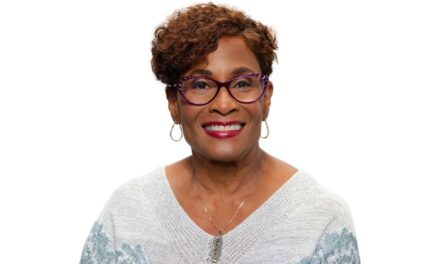By Brittany Selah Lee-Bey
With 130 million adults in the U.S. struggling to read and more than half of Americans between the ages of 16 and 74 (54%) reading below the equivalent of a sixth-grade level, it’s clear that if we’re ever going to get more people reading in this country, we need a different approach that can turn these numbers around.
Low literacy is a serious situation in our country. When people struggle with literacy, they often have low self-esteem, feel ashamed and powerless, and find themselves unable to fully participate in society. They also may experience fewer employment opportunities and lower incomes, which can lead to welfare dependency and crime.
Individuals with low literacy often need to read information more than once before they can fully comprehend it. They also struggle with such things as spelling, filling out forms and navigating their way through a transportation schedule. Anyone can have low literacy regardless of age, gender, race, religion or economic status.
The percentage of fourth graders, for example, who read below proficiency levels is 77 percent in D.C., 57 percent in Virginia and 55 percent in Maryland, according to Think Impact’s child literacy statistics. Reports show children who have low literacy are more likely to feel incompetent, get bad grades, have more school absences and display behavioral issues – all of which can result in feelings of isolation.
So, how can we tackle this issue? Based on my experience, I’d say by the method we use to teach. Let me explain.
Word study is a critical component to literacy development because it offers insight into a person’s ability to decode and comprehend word meanings. Most English words follow a predictable spelling pattern based on orthographic generalizations and etymological principles. By learning to identity patterns of specific letters as words, readers can strengthen word recognition and spelling skills and gain a deeper understanding of word meanings. With development of these skills, reading begins to happen.
Etymology is the study of the origin and history of words. This technique helps readers improve their phonetic awareness, decoding, word identification and spelling. It also can improve reading comprehension, writing abilities, speaking and overall communication by teaching sounds, patterns and word parts to increase word recognition and vocabulary skills.
Research shows that the study of “roots” gives students the ability to learn new words by connecting words and word families that are semantically related. Activities that use “roots” for word exploration (etymology) and word play – such as puns and riddles – also foster “word consciousness.”
For example, Greek and Latin origins have morphemic patterns that contain parts of a word’s meaning. For instance, the words fraternity, fraternal, and fraternize all derive from the Latin word fraternus meaning “brother.” The previously listed words contain the root word frat, and thus their meanings all relate back to brothers or brotherhood. Homicide, suicide and pesticide all come from the Latin root -cide meaning “kill.” When students of etymology come across a word such as fratricide, they can determine the meaning based on their knowledge of root words and the origins of other words.
Currently, word study and etymology are not taught in all schools. But where these learning tools are available, there’s already been significant improvement in reading ability, according to various sources.
Literacy consists of reading, writing, language, speaking and listening. Of all the skills anyone will ever learn, none are more important than the ability to read, sources say. Reading is an opportunity to learn something new, expand one’s vocabulary, train the brain, increase wellness, lower stress and even help with depression. People who read are over 25% more likely to be healthy than non-readers, have a lower mortality risk and have a reduced chance of developing dementia.
These reasons alone justify why we must get more people reading in this country. Wouldn’t you agree?
Brittany Selah Lee-Bey is the author of “EtymologyRules: Back to Basics” and a reading specialist in Washington, D.C., who also promotes the need for effective literacy in underserved communities.
The opinions on this page are those of the writers and not necessarily those of the AFRO. Send letters to The Afro-American • 145 W. Ostend Street Ste 600, Office #536, Baltimore, MD 21230 or fax to 1-877-570-9297 or e-mail to editor@afro.com
Help us Continue to tell OUR Story and join the AFRO family as a member –subscribers are now members! Join here!
The post Op-Ed: What Will It Take to Get More People Reading in This Country? appeared first on AFRO American Newspapers .











